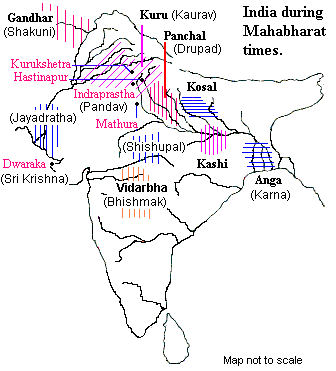Gujjars During :
Solankis
Ghanzni
Ghori
Slaves
Afghans
Iranians
Changez khan
Babar
Moghals
Britishers
Present Kingdoms
Present Situation
Education in Gujjars
Gujjars in News
World Famous Gujjars
What Gujjars need
Gujjars Forum
Gurjars of Ancient India
Lord Krishan Ji with some of the Kshatriyas who
survived the Mahabharta war abandoned Mathura and went towards the west to
Dwarika. The ancient Kshatriya clans thronged around Lord Krishna who united
them into a class and named it as "Gurjar" and their Government came to be
known as "Gurjartar" the first capital of which was established at Dwarka.
(1420 BC) Shri Krishna ruled until his death in 1388 BC

So it is very much clear here that the word Gurjar was not used for a caste. It was used for a union of Kshatriyas under Shri Krishna.
Gurjar is a pure Sanskrit word which means “One, who vanish the enemy”
Gur=Enemy
Jar=Vanishing
Pandit Vasudeva Prasad, a famous Sanskrit Pandit of Banaras, has proved through ancient Sanskrit literature that the word "Gurjar" OR "Gurjara" used to be spoken after the names of antique Kshatriyas. Another Sanskrit scholar Radhakant, is of the opinion that the word 'Gurjar' was for Kshatriyas. Scientific evidence also has proved that Gurjars belong to Aryans.